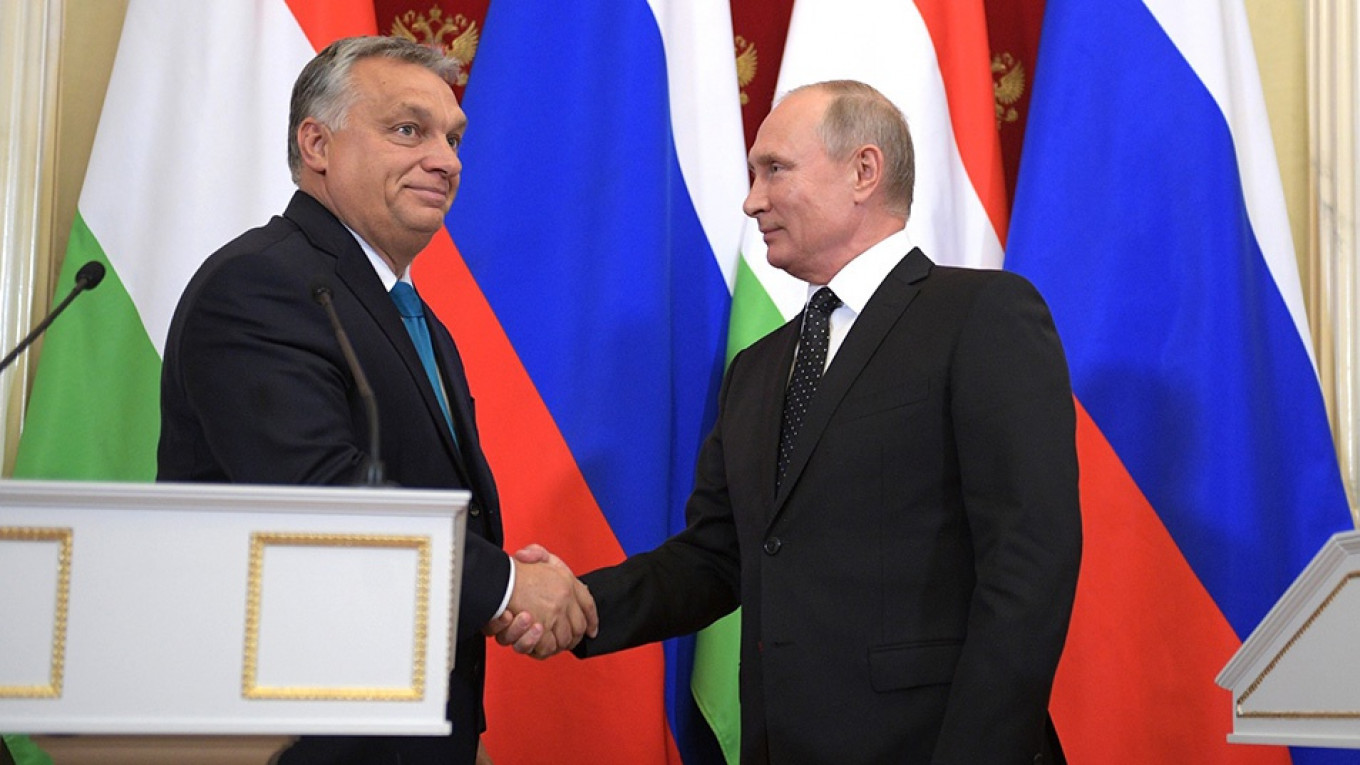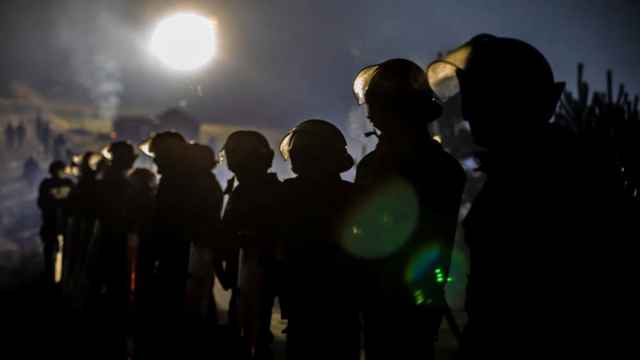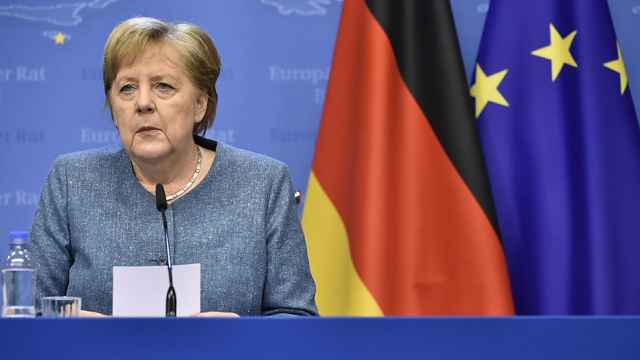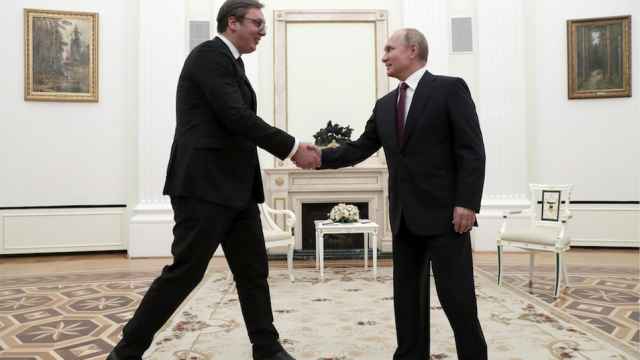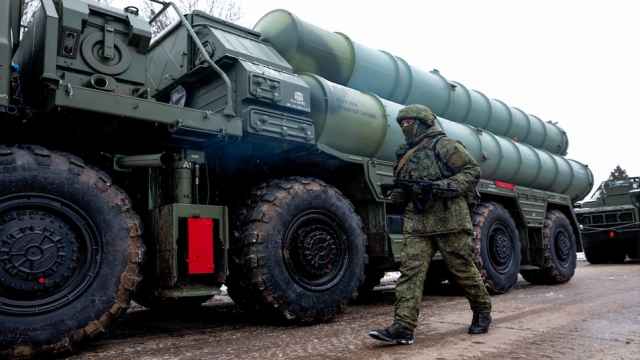At a joint press conference with President Vladimir Putin this week, Hungarian Prime Minister applauded the strong ties between the two countries. “Hungary needs reliable partners,” he said. “And I’m happy that the relationship between our countries has been balanced and reliable for years.”
It would be a much more difficult task for Orban to identify any country in western Europe at the moment that is an equally reliable partner as Russia. Indeed, two-thirds of MEPs last week voted for a resolution that starts a procedure against Hungary for disrespecting fundamental values of the European Union.
In times of diplomatic isolation from the West, Russia is always there to provide shelter. Think back to Greek Prime Minister Alexis Tsipras’s flirtation with Putin around the referendum on the strict financial bailout back in 2015. Tsipras sent a clear message to the EU: If you don’t want me, I will find allies in China and Russia who will help bail me out (they didn’t).
Orban is playing a similar game now. "If the European Union cannot provide financial support, we will turn to China," he told a meeting of business leaders in Berlin earlier this year. And the takeaway from this week’s meeting with Putin was similar: If the EU doesn’t want me, I’ll turn to Putin.
Of course Orban is not the only prime minister in the EU who has been busy cultivating ties with Russia. But he does seem to have a disproportionately strong interest in building a relationship with Putin. Since the beginning of the crisis in Ukraine, Orban has met with the Russian leader seven times. By way of comparison, German Chancellor Angela Merkel has met Putin nine times in the same period and surely the importance of Germany is significantly higher for Russia.
While it’s clear that Hungary is punching way above its political and economic weight with the Kremlin, it begs the question what Putin stands to gain?
First: energy policy. Hungary has become a supporter of practically all Russian energy projects, nuclear and fossils alike. At the meeting this week, Orban said he personally asked President Putin to consider directing the Turkish Stream pipeline (the successor of Southern Stream) through Hungary.
Hungarian opposition to the Nord Stream 2, a controversial pipeline connecting Russia with Germany, has all but evaporated within the last two months. And while financial and bureaucratic problems seem to be plaguing the Hungarian Paks 2 nuclear plant project, Orban has presented it as an important project between a member of both NATO and the EU and Russia.
For Putin, Paks is an important symbol of Russian energy expansion in turbulent times with the EU. Second, Orban is among the most vocal critics of Western sanctions against Russia. While Orban, like other critics, is reluctantly supporting them in the European Council, the Kremlin hopes that like-minded governments in Greece, Austria and Italy can eventually work to have sanctions lifted.
Third, Hungary is working to block Ukraine’s Euro-Atlantic integration. Only two months ago, Orban said that Ukrainian membership in the EU or NATO was “unrealistic.” He claimed Russia might regain its influence over the country anyway, so the sanctions against Russia are pointless.
Hungary is the only country that is actively blocking Ukraine’s accession to NATO and EU because of a debate over Ukrainian education law that restricts the minority languages. Needless to say, this is music for Putin’s ears.
Fourth, Orban is weakening the EU. He is part of a Eurosceptic, pro-Russian club within Europe made up of mostly of far-right and eurosceptic parties. By weakening the EU, the Kremlin would be able to rely more on bilateral ties with individual member states, allowing Moscow to exert more influence on European politics.
Like former Ukrainian president Viktor Yanukovich, Orban is trying to strike a balance between Russia and the EU. The difference is that Orban is a leader of a NATO and EU member state. The more Orban is in conflict with the EU the greater the opportunity for Russia to topple the diplomatic balance within the EU.
Peter Kreko is the Director of the Political Capital Institute. The views expressed in opinion pieces do not necessarily reflect the editorial position of The Moscow Times.
A Message from The Moscow Times:
Dear readers,
We are facing unprecedented challenges. Russia's Prosecutor General's Office has designated The Moscow Times as an "undesirable" organization, criminalizing our work and putting our staff at risk of prosecution. This follows our earlier unjust labeling as a "foreign agent."
These actions are direct attempts to silence independent journalism in Russia. The authorities claim our work "discredits the decisions of the Russian leadership." We see things differently: we strive to provide accurate, unbiased reporting on Russia.
We, the journalists of The Moscow Times, refuse to be silenced. But to continue our work, we need your help.
Your support, no matter how small, makes a world of difference. If you can, please support us monthly starting from just $2. It's quick to set up, and every contribution makes a significant impact.
By supporting The Moscow Times, you're defending open, independent journalism in the face of repression. Thank you for standing with us.
Remind me later.



